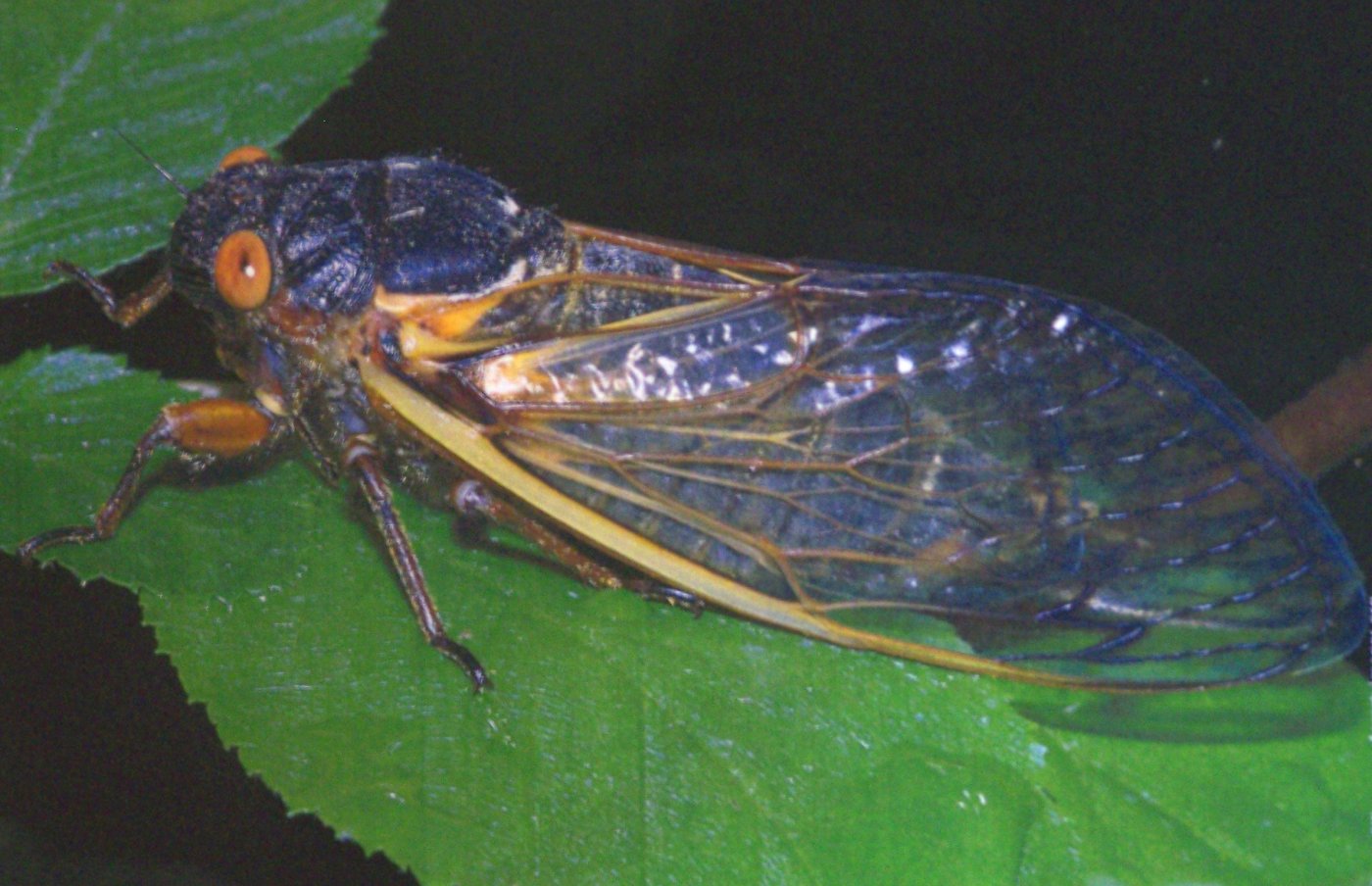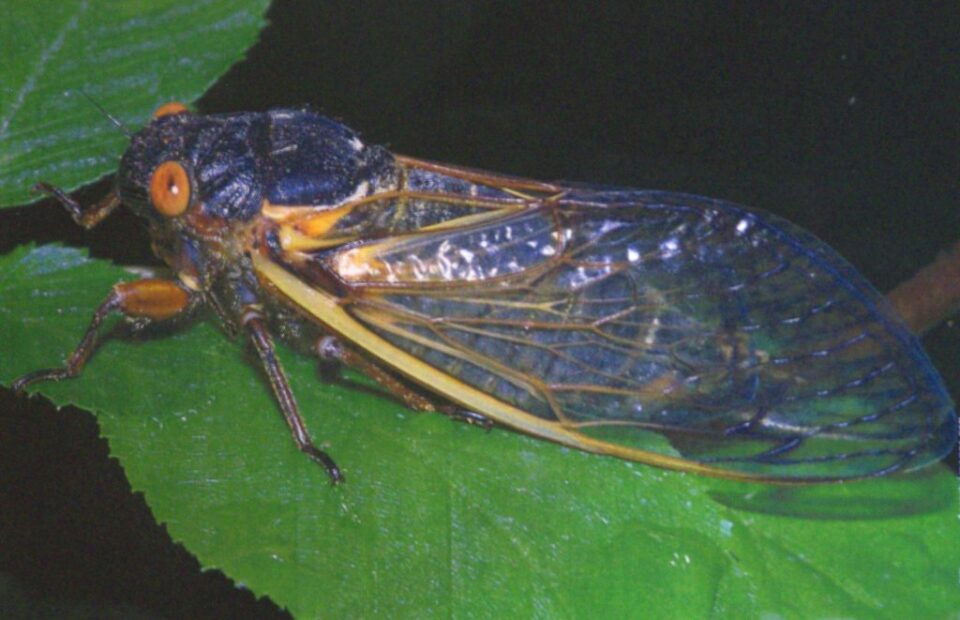
Chicago-area gardeners can look forward to a spectacular natural event this May, as periodical cicadas emerge for the first time in 17 years.
The good news: Seventeen-year cicadas are harmless to people and to most plants, other than some young trees or shrubs. When the cicadas die, they will fertilize your yard at no cost to you. The bad news: The insects will be plentiful, big, stinky and loud.
“If you’ve planned ahead to protect young trees, the cicadas won’t be a problem for the garden,” said Sharon Yiesla, plant information specialist in the Plant Clinic at The Morton Arboretum in Lisle. “The emergence may be annoying, but it will only last four to six weeks.” You can learn more at mortonarb.org/cicadas.
Cicadas can damage young trees that have been planted within the last year or so because the females make slits in branches less than ¼ inch in diameter to lay their eggs. “The egg-laying does no serious harm to any mature tree, but a young tree that mostly has thin branches may be more at risk,” she said.
You can protect a young tree by wrapping it in fine-mesh netting, such as tulle, the fabric used to sew ballerina tutus. “I’d head to the fabric store soon, because tulle may sell out this spring,” Yiesla said. It will take several yards of the fabric to wrap the whole branching area of a small tree.
Install the netting before May and plan to keep it on until the cicadas have died off in four to six weeks. “If you’re planning to plant a tree this year, it might be best to wait to plant until June or in autumn, from the end of September through mid-November,” Yiesla said.
The Arboretum does not advise that homeowners use insecticides to attempt to control cicadas. “There are too many and it would be futile,” she said. Insecticides also can be harmful to beneficial insects that control other pests.
The cicadas will be most abundant in areas with lots of older trees because trees are an important part of their life cycle. “They need a tree to lay eggs in, so you’ll see them in places where there was a tree 17 years ago,” she said. Newly developed areas with few big trees or places where recent construction has disturbed the soil will see fewer cicadas.
The insects are already underground beneath those old trees in the form of nymphs, waiting for the soil to warm up enough to signal them to emerge. Then they will shed their nymph shells and become adults with 1 ½-inch-long bodies and bulging red eyes.
They may be scary-looking, but they won’t hurt you. “They don’t have jaws or stingers,” Yiesla said. “If they accidentally collide with you, it’s just because they are slow and clumsy.”
Their noise will make a much bigger impact. A single male cicada’s mating call has been compared to the volume of a lawnmower. In a wooded area, there may be as many as 1.5 million cicadas per acre.
All those cicadas will die after they mate and lay eggs, so cicada-heavy areas will likely be odoriferous for a couple of weeks as the bodies decompose. “On the other hand, they will improve the soil as they decay and release nutrients,” she said. “It’s free fertilizer.”
Cicadas are native insects. They have evolved alongside native trees in the eastern United States over millions of years.
This year a wider swath of the nation will see periodical cicadas because two broods are emerging at the same time. It will not mean more cicadas in most places, since the two broods mostly occupy different geographic areas.
“There will be a whole lot of cicadas in the Chicago region, but it won’t be more than we see every 17 years,” Yiesla said.
For tree and plant advice, contact the Plant Clinic at The Morton Arboretum (630-719-2424, mortonarb.org/plant-clinic, or [email protected]). Beth Botts is a staff writer at the Arboretum.
Beth Botts , 2024-02-25 11:00:52
Source link


